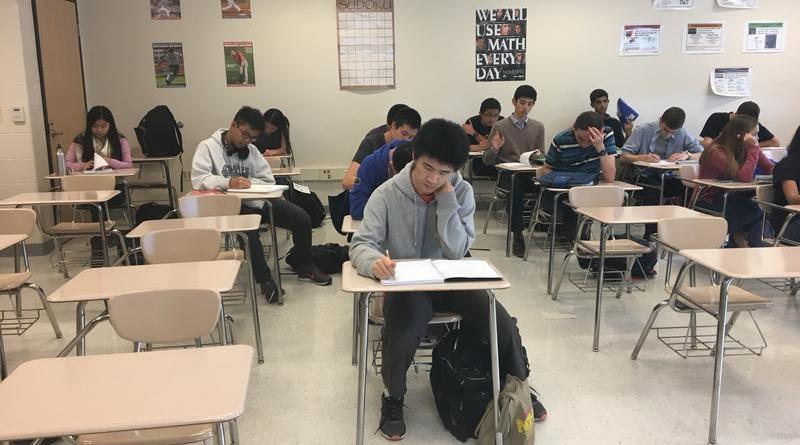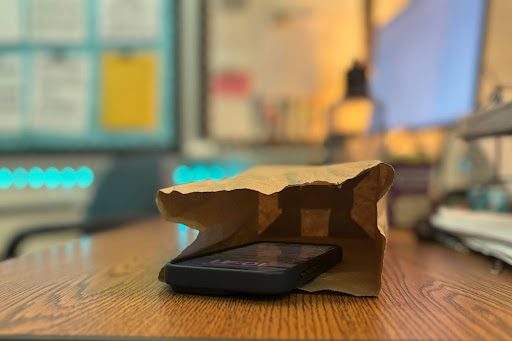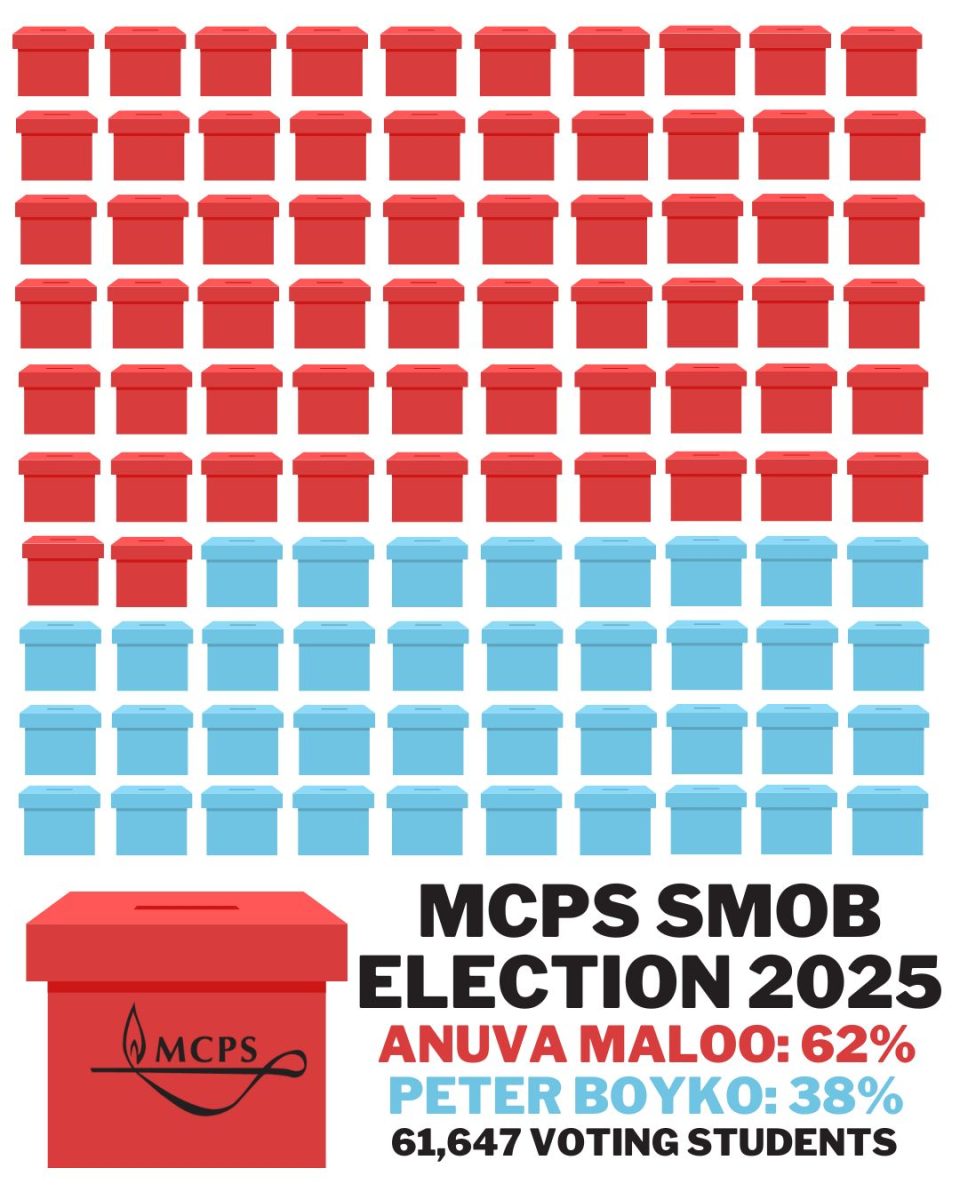Whether it be AP exams, IB exams, the SAT, the Accuplacer or the ACT, every student takes at least one standardized test over the course of their high school career.
To lighten students’ workloads, the MCPS Board of Education has replaced the traditional two hour semester exams with Required Quarterly Assessments (RQAs).
Previously, semester exams covered content from two quarters and were taken in the span of two hours. The new RQAs cover only the content of one quarter, but can last anywhere from one class period to an entire week.
Beginning in Feb. 2016, more than 100 teachers were involved in creating these new tests for all courses that previously had two hour exams.
These tests aim to accurately measure students’ understanding of quarterly material. The Board of Education (BOE) also hopes to condense course content in order to help students concentrate on specific topics.
These marking period assessments have both benefits and drawbacks.
MCPS Student Member of the Board (SMOB) Eric Guerci said, “I think that benefits include reduced testing time, increased instructional time, a greater sense of instructional momentum…The RQAs are one component of our district-wide testing structure; they are supposed to help us provide better instruction.”
Students no longer have to sit for a two hour exam covering topics learned in two full marking periods. Instead, they can focus on grasping the concepts learned in that specific quarter and utilizing them in a shorter test.
Freshman Jolly Ropp said, “You don’t have to study as much for it because you are more aware of the material.”
Although made to increase instructional time, these tests have proven to be tiresome because they can take up to five school days to complete. This decrease in instructional time can be stressful for students as well as teachers.
Biology teacher Cynthia Stevens noted, “The RQA we took for this quarter took two full class periods and involved four writing tasks. From a teacher’s perspective, we used to have the afternoons to get the two writing tasks graded, and get our planning ready for what we were doing next.”
“With [the RQAs], not only have we given up that class period, but we don’t have any release time for grading, so it’s been pretty challenging,” Mrs. Stevens continued.
Math teacher John Chase believes the RQAs are a temporary plan to cover for the lack of final exams.
“I think it’s pretty shortsighted, in my opinion, to get rid of final exams. And this is the solution… that they’ve come up with,” Mr. Chase said.
The tests are meant to make up two weeks of instructional time that were taken away when the semester exams were implemented. They constitute 10% of a student’s grade every quarter — a 15% drop from the semester exams, which made up 25% of a student’s grade.
Some students, however, have voiced concerns about the value of the test and its overall relevance to the concepts they learn in class.
Freshman Jessica Holloway said, “They are a poor representation of what we are learning in class…the RQA is putting us at a level that we are not at, and is testing us stuff that has nothing to do with what we have learned.”
MCPS has mentioned that the tests are more concept-based, and help to find out how well the student can follow through with a specific skill rather than memorized vocabulary. Thus, the county hopes RQAs will improve student learning by guiding struggling students with specific support in the following quarters.
The new tests also allow for widespread data collection. As set out by MCPS, one purpose of these tests is to improve the learning environment by gathering assessment data.
Sophomore Grant Yang said, “[The RQAs] are beneficial in the way that they standardize our final exams against those in other parts of the county… you get to see how people compare to each other.”
“[RQAs] will make life a bit less comfortable at the turn of the marking period… so more can be done to help facilitate a seamless transition to the next semester,” Guerci said.
Having been implemented for the first time this year, RQAs are far from perfect, yet they have qualities that enhance student learning.
Featured photo by Jessica Ji.












